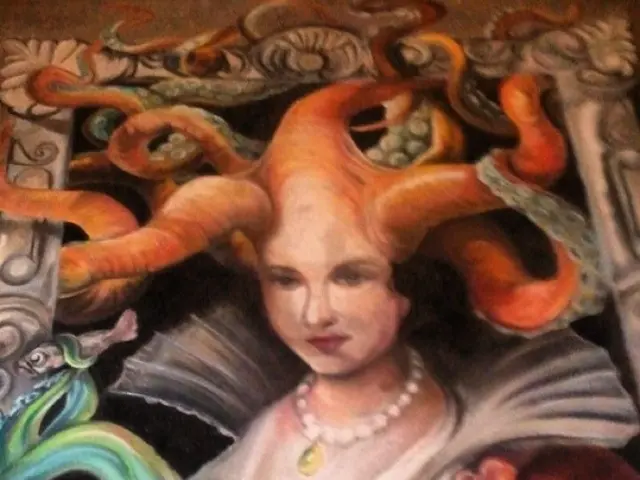With proper awareness, you would have been duly aware.
Munich's Oktoberfest: A Rich History and Tradition
The Munich Oktoberfest, a celebration of Bavarian culture and beer, has a rich history that spans nearly 215 years. This year, some of the traditional tents are celebrating significant milestones, while the city continues to uphold long-standing traditions.
The Schottenhamel tent, the oldest on the Theresienwiese, has been a part of the festivities since 1867. It is here that the tapping of the barrel always takes place, a tradition established in 1950. The Schottenhamel tent is also where the Minister-President of Bavaria receives the first Maß, a tradition started by Franz Josef Strauß in 1980.
Mayor Thomas Wimmer, who introduced the traditional tapping in 1950, needed a total of 17 taps, according to city's records. Today, the record for the fewest taps is shared by Dieter Reiter and Christian Ude, both former mayors of Munich, each with two taps to their name. However, Reiter, who is currently serving as Mayor, has expressed his desire to attempt the risky record of the fewest taps during his last Wiesn as Mayor, not this year.
One of the smaller Wiesn tents, the Hühner- und Entenbraterei Ammer, has been on the Theresienwiese since 1885 and is celebrating its 140th Oktoberfest this year.
The Munich Child, leading the entrance of Wiesnwirte and the Trachtenumzug on horseback, is currently Franziska Inselkammer. The tradition of the Munich Child dates back to 1938, with Ellis Kaut, the creator of Pumuckl, being the first Munich Child.
The Wiesn battle cry "Ein Prosit der Gemütlichkeit" was not invented by a Bavarian; it was composed by Georg Kunoth, a journalist and composer from Bremen. It was a tavern owner from Nuremberg who brought the cheer to Oktoberfest and made it immortal.
The Munich Oktoberfest has not always been a consistent annual event. It has been forced to take breaks several times in its history, with around two dozen cancellations due to wars, diseases, inflation, and the Corona pandemic. In the 19th century, the festivities were halted twice due to an epidemic, at a time when cholera was raging.
Despite these challenges, the spirit of Oktoberfest endures. As the mugs clink together in the Schottenhamel tent, the crowd urges each other to take a deep swig, with the imperative 'gsuffa' echoing across the Theresienwiese. This phrase, grammatically the past participle of 'saufen', is a reminder of the shared joy and camaraderie that Oktoberfest represents.
In the midst of this celebration, it's easy to forget the rich history and traditions that make Oktoberfest such a unique and cherished event. As the city of Munich continues to uphold these traditions, the Oktoberfest remains a testament to Bavarian culture and spirit.
Read also:
- Highlighted Achiever at Scripps College: Alyssa Griffin
- NYC's top fall festivals: immerse in cinema, cuisine, autumn ambiance, and more diverse offerings
- "Fond tributes paid to Mikkel Larsen, a respected figure in environmental conservation and carbon management, following his passing"
- Florida Beach Celebrated as the "Global Hub for Shark Teeth"








